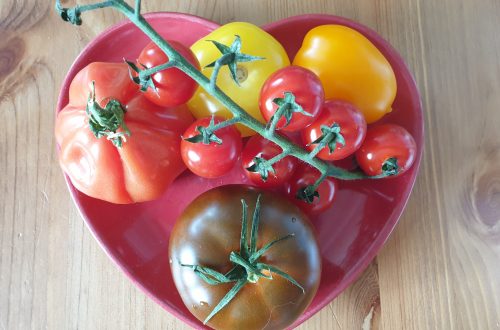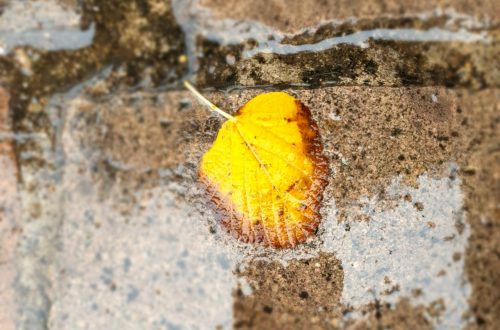-
Polish to Begin with: Lesson 19
Today we are talking about family. Here is the link. And here is the vocab: family = rodzinasister = siostrabrother = bratmother = matkafather = ojciecmum = mamadad = tatabye-bye = pa pa
-
Polish to Begin with: Lesson 18
This podcast is for you to check how much you have already learnt. You should be able to understand most of it – if not, go back to our previous lessons and see which parts you have missed. Co za dziwny zbieg okoliczności = What a strange coincidence! Download it from here!
-
Polish to Begin with: Lesson 17
Today: all phrases you need when eating 🙂 Download bon appetite = smacznegothe same to you = nawzajemHave a nice weekend. = Miłego weekendu.cheers = na zdrowieTea or coffee? = Kawa czy herbata?Coffee, please. = Poproszę kawę.Tea, please. = Poproszę herbatę.Tea with milk but without sugar, please. = Poproszę herbatę z mlekiem, ale bez cukru.Tea with lemon, please. = Poproszę herbatę z cytryną.Do you take sugar? = Słodzisz?No, thank you. = Nie, dziękuję.One spoon of sugar, please. = Tak, poproszę jedną łyżeczkę cukru.Two spoons of sugar, please. = Tak, poproszę dwie łyżeczki cukru.
-
Polish to Begin with: Lesson 16
Today we are talking about food and we introduce the first case – Accusative. To listen download We have lots of food. = Mamy dużo jedzenia.fridge = lodówkaWhat’s in our fridge? = Co jest w naszej lodówce?milk = mlekojam = dżemham = szynkameat = mięsovegetables = warzywacarrot = marchewkaradish = rzodkiewkaonion = cebulacabbage = kapustapotatoes = ziemniakifruit = owoceapple = jabłkobanana = bananorange = pomarańczaorange juice = sok pomarańczowyIn the fridge we have vegetables and fruit. = W lodówce mamy warzywa i owoce.In the fridge we have butter, meat and milk. W lodówce mamy masło, mięso i mleko.In the fridge we have juice, jam and yogurt. = W lodówce mamy…
-
Polish to Begin with: Lesson 15
At last we have our 15th Bloggy Polish podcast for beginners. It’s still all about present tense of verbs ending with -ać. Here it is. Or here: I love. = Kocham.You love. = Kochasz.Loves. = Kocha.We love. = Kochamy.You all love. = Kochacie.They love. = Oni kochają.to watch = oglądaćIn the evening I watch tv. = Wieczorem oglądam telewizję.to run = biegaćAt the weekends I run in the park. = W weekendy biegam w parku.to swim – pływaćOn Saturday I swim at the swimming pool. = W sobotę pływam na basenie.to ask – pytaćto eat – jeśćI eat = Jem.You eat. = Jesz.He eats. = On je.She eats. = Ona…
-
Polish to Begin with: Lesson 14
In this Bloggy Polish podcast for beginners we talk about some verbs in present tense and other useful things. Download or listen here: revision, review = powtórkaAnd now, revision, review. = A teraz – powtórka.And now it’s time for revision. = A teraz czas na powtórkę.I live in London. = Mieszkam w Londynie.You live in London. = Mieszkasz w Londynie.to read = czytaćI’m reading a paper. = Czytam gazetę.He’s reading a text in the Internet. = On czyta tekst w Internecie.They are reading a magazine. = Oni czytają magazyn.to fall = padaćI’m exhausted. = Padam na nos.It’s raining. = Deszcz pada.It’s raining. = Pada.Get lost! = Spadaj!
-
Polish to Begin with: Lesson 13
In this Bloggy Polish podcast for beginners we talk about grammatical genders in Polish. When you learn a new noun in Polish, it’s good to remember what gender it is: męski (masculine), żeński (feminine) or nijaki (neuter). We put symbols in brackets to help you with that. water = woda (ż)mum = mama (ż)coffee = kawa (ż)tea = herbata (ż)lemon = cytryna (ż)computer = komputer (m)phone = telefon (m)boy, boy-friend = chłopak (m)bread = chleb (m)table = stół (m)house, home = dom (m)bus = autobus (m)beer = piwo (n)wine = wino (n)question = pytanie (n)breakfast = śniadanie (n)chicken = kurczę (n)centre = centrum (n)time = czas (m) To download the…
-
Polish to Begin with: Lesson 12
In this Bloggy Polish podcast for beginners you will learn numbers up to 100. Downloador listen here: 30 = trzydzieści40 = czterdzieści50 = pięćdziesiąt60 = sześćdziesiąt70 = siedemdziesiąt80 = osiemdziesiąt90 = dziewięćdziesiąt100 = stoThat’s too difficult. = To za trudne.How old are you? = Ile masz lat?I’m 26. = Mam 26 lat.an apple = jabłkoYou’re stupid. = Głupi jesteśI think that… = Myślę, że…
-
Polish to Begin with: Lesson 11
In this Bloggy Polish podcast for beginners you’ll learn lots of useful adjectives. Here they are: hungry = głodny, głodnatired = zmęczony, zmęczonabeautiful = piękny, pięknatall = wysoki, wysokahandsome = przystojnyugly = brzydki, brzydkashort (opposite to tall) = niski, niskafat = gruby, grubaslim = szczupły, szczupłapoor = biedny, biednarich = bogaty, bogataold = stary, starayoung = młody, młodabig = duży, dużasmall = mały, małalong = długi, długashort (opposite to long) = krótki, krótkaWhat does it mean? = Co to znaczy?Download or listen here:
-
Polish to Begin with: Lesson 10
In this Bloggy Polish lesson for beginners you’ll learn the verb “to have” . Download or listen: To be or not to be. = Być albo nie być.to have = miećI have = mamI have a problem. = Mam problem.I have some time. = Mam czas.I don’t have much time. = Nie mam czasu.you have = maszDo you have a question? = Masz pytanie?he has = on maHe has a Polish girl-friend. = On ma polską dziewczynę.she has = ona maShe has a Polish boy-friend. = Ona ma polskiego chłopaka.we have = mamyWe have a Polish lesson now. = Mamy teraz lekcję polskiego.you have = macieYou have a nice house.…

